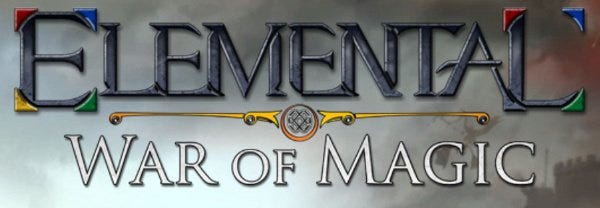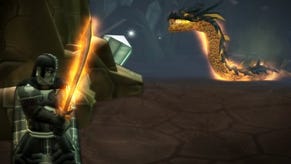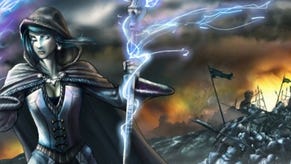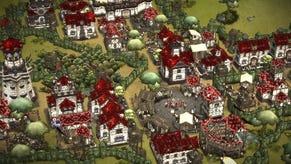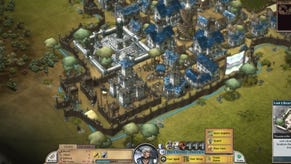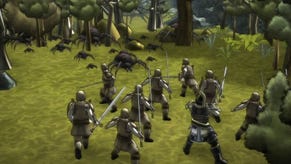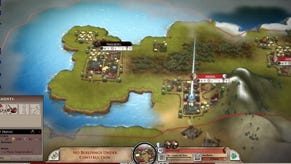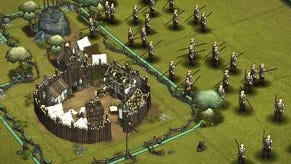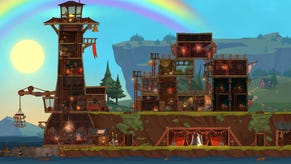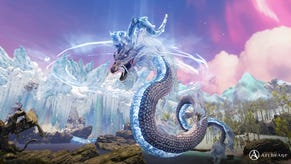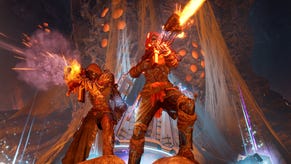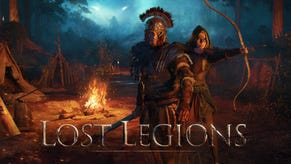Impressions Of: Elemental - War Of Magic
In my time so far with Stardock's Elemental I've come to hate one thing above all overs. As in, its name. Which seems strange, because it's a name with a certain grandeur to it. It also pretty-much close to Google-proofs it when I'm scouring the Internet, trying to find out whether it's possible to do obscure and arcane things like - say - upgrade your units. I'm left without a clue, and pressing on anyway. And doing really well, but there's the nagging sense that I'm missing something and could be doing better. That said, the AI seems to be in the same boat, so perhaps it all evens out.
Okay, let's go from the top.
Elemental - or, to give it its proper punctuation hungry PC-games-title "Elemental - War of Magic" - is a fantasy turn-based-strategy game. File next to Master of Magic or - if you're merely fairly ancient instead of impossibly ancient - Age of Wonders. If you're unfamiliar, imagine it like a fantasy-Civ with a heavier leaning on the tropes of fantasy. So, as well as building your army and your financial infra-structure, you have heroes who gain equipment, go on quests, cast spells and all that sort of thing. Oh - and there's (optional) tactical-scale turn-based battles when you go into a fight, allowing you to move all your units around and biff the hell out of one another. It's also got things like Dynastic succession and marrying off your kids to cement alliances. Which leads to fun things like this in the manual...
The potential spouses that are likely to provide the most powerful offspring will require higher reputations than those who are less picky, with more middling abilities for future children.
AND IN THE GAME!
Actually, all that being said, the most pertinent reference point is actually Stardock's previous triumph, Galactic Civilization 2. There's enough fine detail in its execution of the game which seems to resonate with it. To choose an obvious example, rather than just making units more powerful you can research squad size - a parallel with the logistics for fleet size in GalCiv - which means you have multiple soldiers as the same unit, increasing their power proportionally. To choose something with a little more flourish, there's the ability to actually individually design your units. So you decide what individual armour, weapons, special stuff, hats and similar you want them to have, including poses and a little quote. Of course, you don't have to do it, as you discover new stuff it reveals pre-generated ones like so.

However, if you're anything like me, you'll work out stuff like...

It's also like GalCiv2 in another key way. It's perversely counter-intuitive in a few areas. Which isn't a problem - the problem is that it's terribly bad at explaining how the counter-intuitive bits actually operate, and when the game appears to look like something you understand, it's easy to leap to the wrong conclusions. The manual is simply inadequate and the campaign mode - which is meant to operate as a kinda-tutorial - is both dull, with some of the twitchiest bits of the game (I had a scripting error which required replaying a section) and doesn't really explain stuff. The real game is, like Gal Civ, in the randomly generated worlds and you're best to just dive in and try and make some sense of it. And eventually, it sort of comes together, at least enough to play, though I'm constantly having moments where a briefly-flashed-up loading tip says something which causes me to go "WHAT!?!?!?! IT WORKS LIKE THAT?".
Here's an example: when you defeat your opponent's faction leader, their faction is wiped out. In the game I played over the weekend, the end-game approaches and I'm doing a decapitation approach by zapping around the map with teleport and crushing my foes beneath my feet. I get to the point where the final general is facing me, and make my move. Except, when I kill him, he teleports away to the nearest town. I curse, march to the town, smash him again... and he teleports away again. I think I understand what it means. Stardock realise that in a game where you can do this decapitation strike, it makes it too easy to win the game - because you can always reload if you over-use your general. So with the final enemy, they give him this ability, which means that I have to actually crush their empire.
Except I discover that's totally wrong. The rules are - apparently - that if you kill the enemy leader inside his own territory, he'll teleport away assuming they have mana. However, if you kill them outside their terrain, they just die and their empire with them. The reason why I'd decapitated two enemies this easily is that the AI - at least on the normal level I was playing - doesn't seem to stress things about little things like losing their empire in a single strike versus a clearly superior enemy army.
Which leads to the whole controversy from last week. At the moment, I think "unfinished" is too harsh a phrase. I'd lean towards "a bit shoddy".
Some of it is surface. One which turned up a lot earlier was having the wrong icon in a toolbar for your character. A more regular one was seeing that a city of yours now appears to belong to another nation, while you're still clearly in control with it - though this may be some manner of spell or influence ability going on (And that's a problem with it right now - the game is definitely in the state where it's difficult to ascertain whether something is a bug or whether it's a rule you're simply not processing properly). There's oddities with the UI - like being unable to scroll away from a place when you've got the build menu open, which is a strange decision. Also, when you're asked what special ability you want to give a village in a pop-up which conceals the village in question and gives no access that I can see for checking out what that village does, requiring me to remember which town is which from its silly fantasy name alone. Then there's the actual bugs - the latest novel one was a really strange one where I entered the battle screen, did a move and then was unable to select any of the other units. Performance seems a little treacly, though not unbearable. Oh - and about 50% of the time when I alt-tab back to desktop, the game crashes. Which wouldn't be a major problem, except it's a game where I'm rooting through internet-FAQs and the PDF manual as I play. Oh - and the multiplayer isn't in it yet.
It's worth noting the crashes, while annoying, aren't a critical error. The game actually autosaves with every turn, so it's not as if you're ever losing a game... but it's obviously sub-optimum. As a whole, however, it does sap the will to continue. I've always been one to forward the argument that I'll accept a lack of polish and even open rubbishness in exchange for a game that's interestingly ambitious. Frankly, complete polish normally just implies you were reaching for something that was possible - and so, at some level, not really worth caring about. I'm Deus Ex over Ocarina of Time, every day of the week. Why don't I forgive Elemental? Well, for the simple reason that it doesn't feel that ambitious or expansive. It feels like a reasonable sized fantasy strategy game. The unit stuff is interesting and playful - though, once you've set up the basics, of dubious tactical worth without the careful mullti-weapon/multi-armour structure of GalCiv2 - but there's little which screams out VISIONARY FANTASY WARGAME WHICH OVERCOMES PROBLEMS WITH UNIQUEOSITY. It's not - say - Solium Infernum or Armageddon Empires.
As such, I'm not sure if I'll be playing it much more at the moment. I'll be listening to future developments and word of its current state with interest - especially with the hefty mod-tools included - but the result of playing it for the weekend has mainly been "Ooh - I haven't played Age of Wonders: Shadow Magic with the 1.4 user-patch. I should probably drag that out and give it a shot". And, modern aesthetics aside, were I recommend a strategy fantasy game to you today, it'd be Age of Wonders every time - if it wasn't for the small problem it's pretty much unavailable at the moment.
Generally speaking, I'm a little conflicted. On one hand, the game doesn't have enough structure to understand whether my decisions are wise or bloody stupid. I don't know if I'm doing well or badly, and that I don't know how to upgrade troops - and, c'mon! There surely must be a way to just give these dudes who have decent XP a better spear, yeah? - implies I'm missing much. On the other hand, playing standardly and walking the map without a real threat, ignoring the mass of spells in favour of the army-destroying chain-lightning and all that... well, I'm not sure how much I need to learn now. There's the possibility that Elemental is a complex game that doesn't explain itself which you don't need to understand to win. And, for a strategy game, that's the worst of both worlds. The missing link is the AI. If we get to the famously brutal Galactic Civilization style of AI, then players will have to engage with the system at a high level to succeed... which will just leave the game's problem being one of explaining itself how to achieve that high level of skill.
We don't have any of that now and, as such, I'm stepping away from it.
